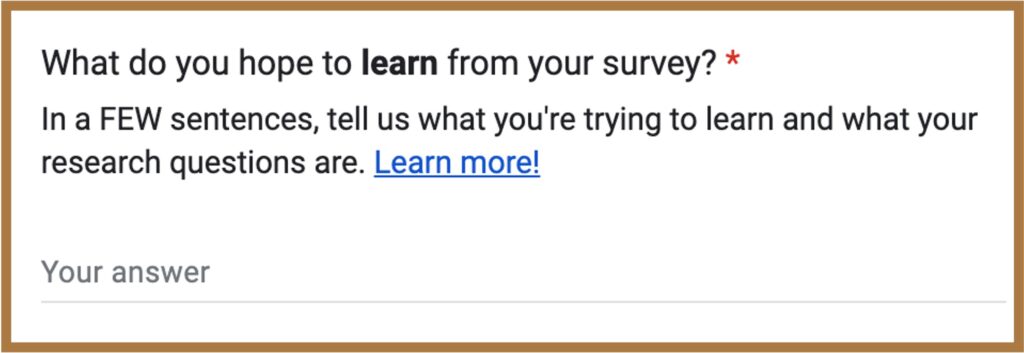Large Survey Process Step 1
Step 1. What do you hope to learn from your survey?
What important things are you trying to learn from your survey? Are you evaluating whether your program, policy, or practice was effective? Determining programs, policies, or practices are needed? Taking inventory of people’s experiences, skills, or program use? Gathering some baseline data?
Why do we ask this question on the Large Survey Request Form?
We review surveys’ content to help us coordinate projects with similar content. We can also put you in touch with people who may already have the data you need.

Tips for Best Practice
You can think about your survey project as research: you’re trying to learn about a topic. Research questions can help you stay focused on your learning goals.
Much like selling under the guise of research isn’t helpful, the best research questions are unbiased.
- Biased: I want to prove that my program will raise the first-year retention rate.
- Unbiased: I want to evaluate whether my program will raise the first-year retention rate.
Your research question tells you what is important about your survey, including the direction your project takes: the data you gather, the analyses you conduct, the reporting you do, and more.
The reverse is not true. You cannot conduct a survey and expect it to tell you what is important. There are too many variables that can be combined in too many ways. Take a peek at spurious correlations to see why data without research questions aren’t informative.

Your research questions determine your direction, not the survey.
Questions? Contact us at largesurvey@wfu.edu
